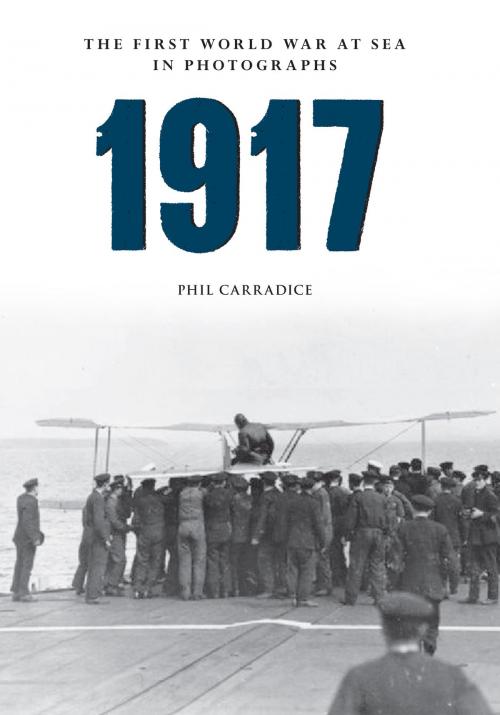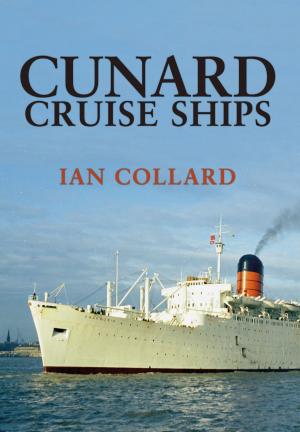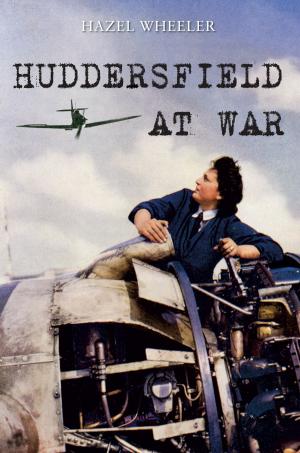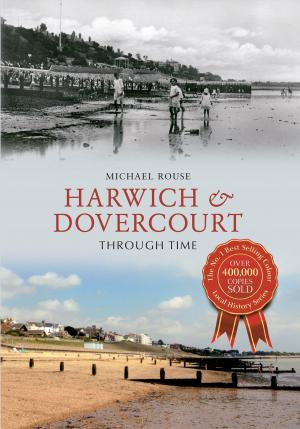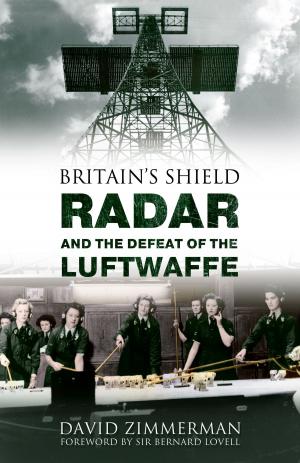| Author: | Phil Carradice | ISBN: | 9781445622705 |
| Publisher: | Amberley Publishing | Publication: | December 15, 2014 |
| Imprint: | Amberley Publishing | Language: | English |
| Author: | Phil Carradice |
| ISBN: | 9781445622705 |
| Publisher: | Amberley Publishing |
| Publication: | December 15, 2014 |
| Imprint: | Amberley Publishing |
| Language: | English |
The year 1917 was dominated by the Russian Revolution and America entering the war. On 3 February, America cut diplomatic ties with Germany following the announcement on 31 January that Germany would begin unrestricted submarine warfare. All 111 U-boats were ordered to sink any vessel at will. The hope was that Britain would be starved into submission. America declared war on 6 April and US destroyers joined the fight against the U-boats while US battleships joined the Grand Fleet at Scapa Flow. Losses to submarines were now so great that Britain was in danger of running out of food and the convoy system was brought into force. The impact was huge and German U-boat losses climbed rapidly. At Scapa Flow, on the evening of 9 July 1917, the battleship HMS Vanguard exploded. On 2 August 1917, Squadron Commander Edwin Dunning successfully landed a Sopwith Pup on board HMS Furious, becoming the first person to land an aircraft on a moving ship. The aircraft carrier had come of age. Meanwhile, in Petrograd the start of the Bolshevik Revolution was signaled when the cruiser Aurora fi red at the Winter Palace. Phil Carradice takes us through the First World War at sea in photographs, showing us the horror of war and telling the story of some of the key moments of the conflict.
The year 1917 was dominated by the Russian Revolution and America entering the war. On 3 February, America cut diplomatic ties with Germany following the announcement on 31 January that Germany would begin unrestricted submarine warfare. All 111 U-boats were ordered to sink any vessel at will. The hope was that Britain would be starved into submission. America declared war on 6 April and US destroyers joined the fight against the U-boats while US battleships joined the Grand Fleet at Scapa Flow. Losses to submarines were now so great that Britain was in danger of running out of food and the convoy system was brought into force. The impact was huge and German U-boat losses climbed rapidly. At Scapa Flow, on the evening of 9 July 1917, the battleship HMS Vanguard exploded. On 2 August 1917, Squadron Commander Edwin Dunning successfully landed a Sopwith Pup on board HMS Furious, becoming the first person to land an aircraft on a moving ship. The aircraft carrier had come of age. Meanwhile, in Petrograd the start of the Bolshevik Revolution was signaled when the cruiser Aurora fi red at the Winter Palace. Phil Carradice takes us through the First World War at sea in photographs, showing us the horror of war and telling the story of some of the key moments of the conflict.
